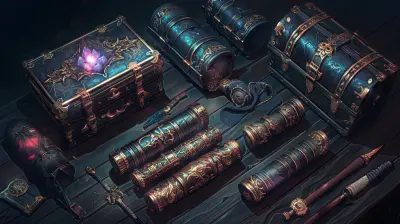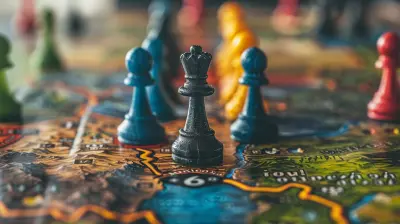Exploring the Art of Diplomacy in Competitive Games
3 October 2025
Let’s talk about something we’ve all dabbled in during our gaming adventures—diplomacy. Whether you're trading wood for sheep in Catan or trying to convince your best friend not to backstab you in Among Us (knowing full well you’re the imposter), diplomacy in competitive games is both an art form and a survival skill. It's the subtle way of saying, "I come in peace," while secretly sharpening a metaphorical dagger behind your back.
Competitive games often boil down to two things: strategy and mind games. But here’s the kicker. Even if you’ve got a rock-solid strategy, you can’t always brute force your way to victory. Sometimes, sweet-talking (or trash-talking) your opponents is the only way to get ahead. Diplomacy adds a delicious layer of mind-bending trickery that elevates competitive games to a whole new level.
So, grab a snack, settle in, and let’s dive headfirst into the cunning, conniving, and occasionally comedic world of gaming diplomacy!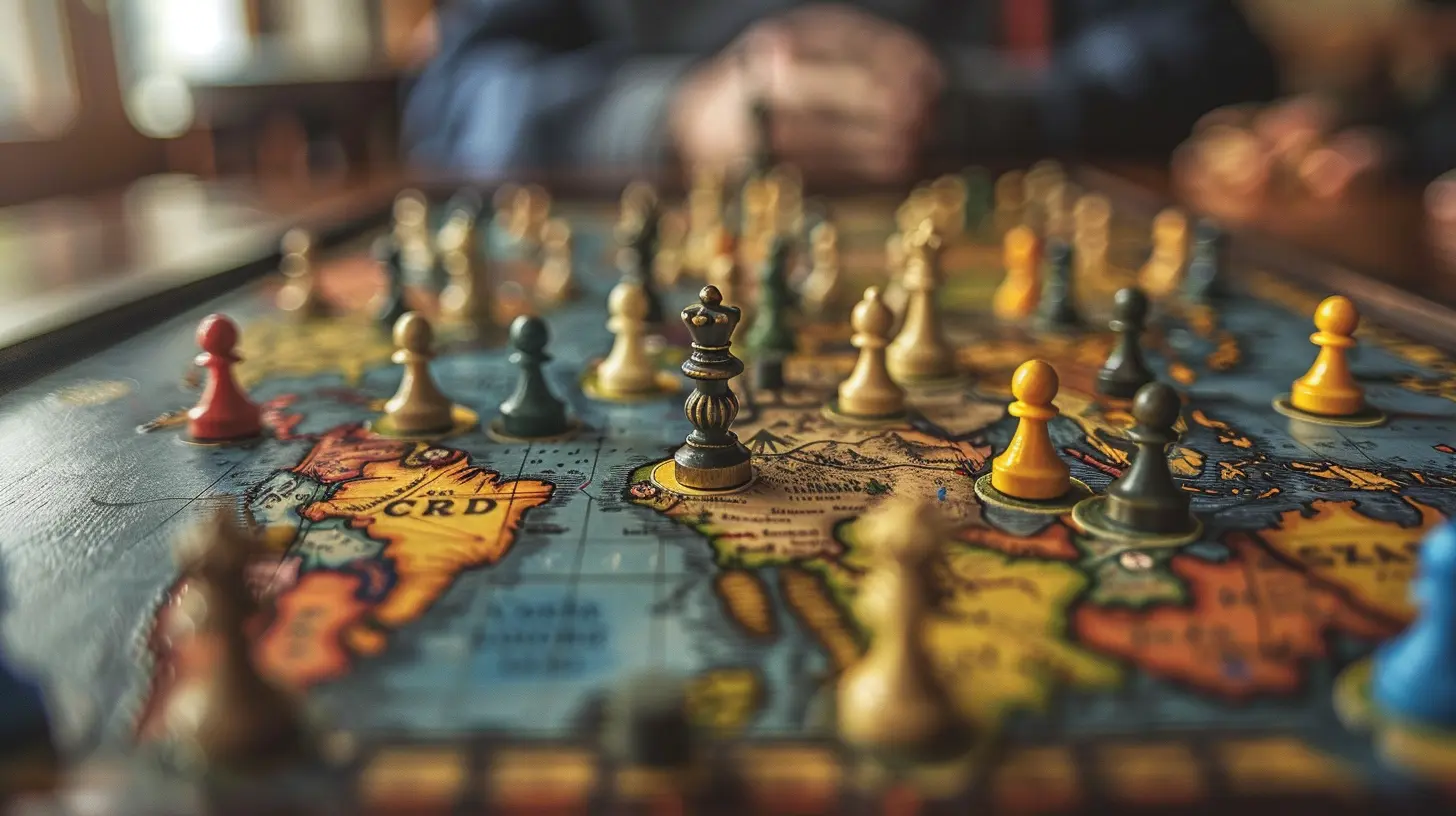
Why Diplomacy Matters in Competitive Games
Alright, let’s be real for a second. Competitive games are often a stew of chaos, alliances, betrayals, and power grabs. Without diplomacy, they’d be about as fun as playing Tic-Tac-Toe against an AI that never loses. Diplomacy brings spice to the mix. It sets the stage for epic alliances, hilarious misunderstandings, and, of course, some good ole fashioned backstabbing.Think of it like this: if strategy is the sword, then diplomacy is the shield. A well-timed alliance or an expertly delivered bluff can keep that sword from stabbing you where it hurts. It’s not just about survival, though. It’s about thriving. The best part? Diplomacy isn’t just about lying through your teeth—it’s about reading the room, knowing when to push, and when to pull back. 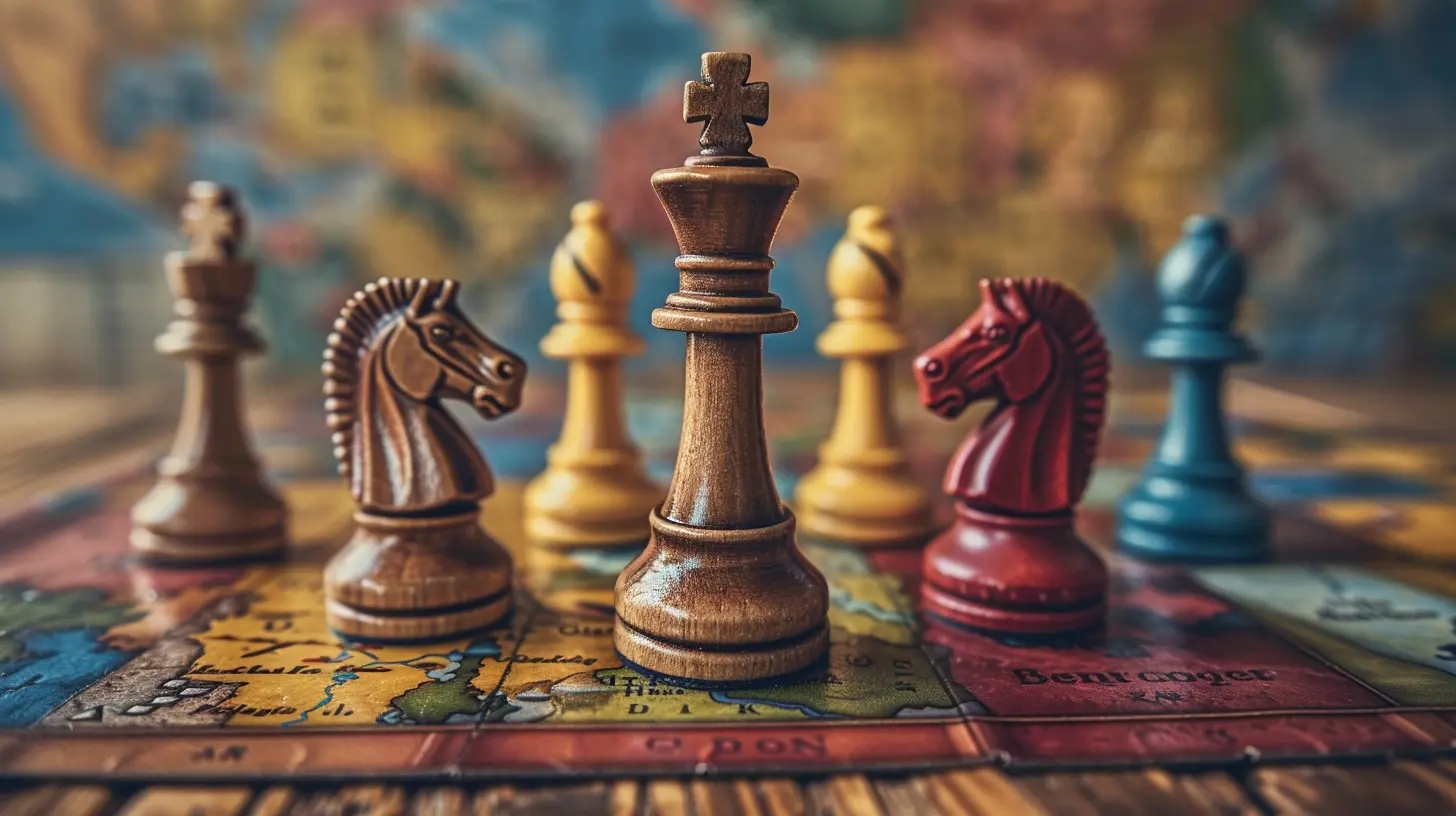
The Core Pillars of Gaming Diplomacy
Diplomacy might feel like wizardry, but let me break it down for you. It’s not magic—it's psychology. There are a few core principles you need to master before you can out-maneuver your competition. Let’s tackle them.1. Building Trust (aka The Jedi Mind Trick)
Trust is the currency of diplomacy. Without it, your words are as valuable as Monopoly money. You can’t expect someone to team up with you if you’ve betrayed them more times than you can count. Want to seal the deal? Start by genuinely helping others when it doesn’t benefit you immediately. Call it an investment.That said, remember: trust doesn’t mean honesty. You don’t have to spill all your secrets, just enough to make them think you’re on their side. Think of it like being a smooth-talking car salesman, but instead of selling a used car, you’re selling alliances and half-truths.
2. Communication Is King
A poorly communicated alliance is a doomed one. Want someone to be your ally? Let them know what's in it for them. Everyone’s thinking, "What do I get out of this?" Lay it out. Be crystal clear about how your plan benefits them (even if you’re secretly planning to flip the script later).Pro Tip: Timing your communication is crucial. Saying, “Let’s team up!” five seconds before someone scores a game-winning move is as effective as yelling at a brick wall.
3. Feign Weakness, Fake Strength
This one’s an absolute classic. It’s the gaming equivalent of “the quiet kid in the back of the class who turns out to be a genius.” If you’re in a dominant position, downplay it. If you’re barely holding on, bluff like your life depends on it. Players are less likely to target someone they perceive as weak, and they’re more likely to gang up on the leader.Now, I’m not saying you should cry wolf every single game—that’s a one-way ticket to never being trusted again—but a well-timed “Oh no, I’m totally losing!” can work wonders.
4. Mastering the Art of Misdirection
Ah, misdirection. The bread and butter of every cunning diplomat. If you’re in a game of social deduction (Werewolf or Mafia, for example), misdirection is your best friend. Point fingers. Sow confusion. Keep the heat off yourself. Remember, your goal isn’t just to survive—it’s to thrive while others turn on each other.It’s like being a magician; everyone’s watching your left hand while your right hand is pulling off the master trick.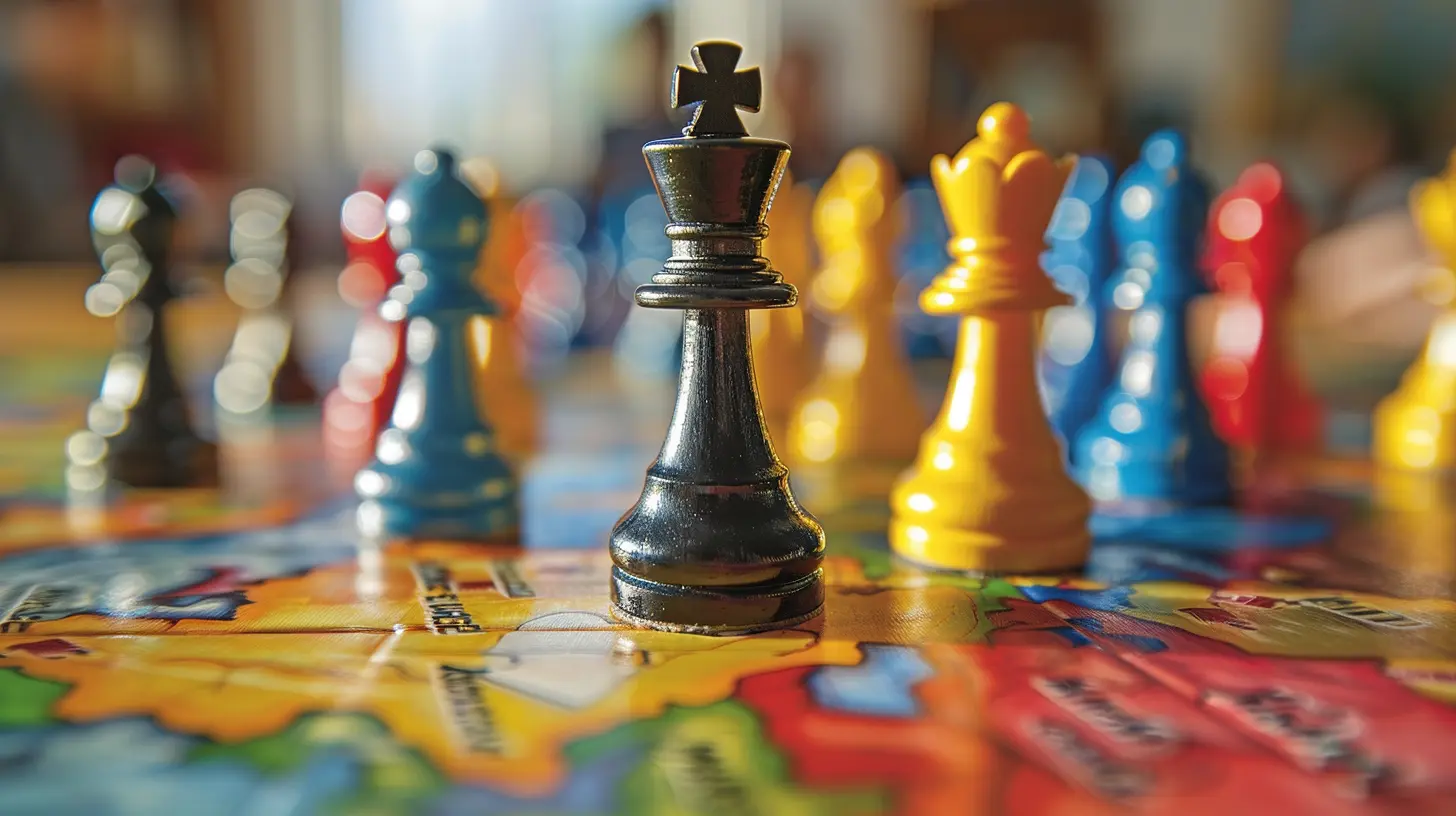
The Best Games for Practicing Diplomacy
Not all games are built for diplomacy. You can’t exactly forge alliances in Tetris (unless you’re whispering sweet nothings to the Tetrominoes). But certain games practically beg for diplomatic shenanigans. Let’s unpack a few:1. Catan
Ah yes, the classic board game where friendships are made and destroyed over a handful of sheep cards. Catan is practically diplomacy boot camp. “I’ll trade you three wheat for one brick” is basically gamer code for “I’m trying to win, but let’s pretend this is mutually beneficial.”2. Among Us
This game makes Catan look like a wholesome Sunday picnic. If you’re the imposter, congratulations—you’re now a full-time diplomat. Convincing others why you totally weren’t near the body while sowing suspicion on someone else is an Oscar-worthy performance every time.3. Diplomacy
I mean, the name says it all, right? This classic board game is all about alliances, negotiations, and inevitable betrayals. It’s like Game of Thrones, but with fewer dragons and more strategy. If you’ve ever wanted to test your diplomatic chops, this is the game for you.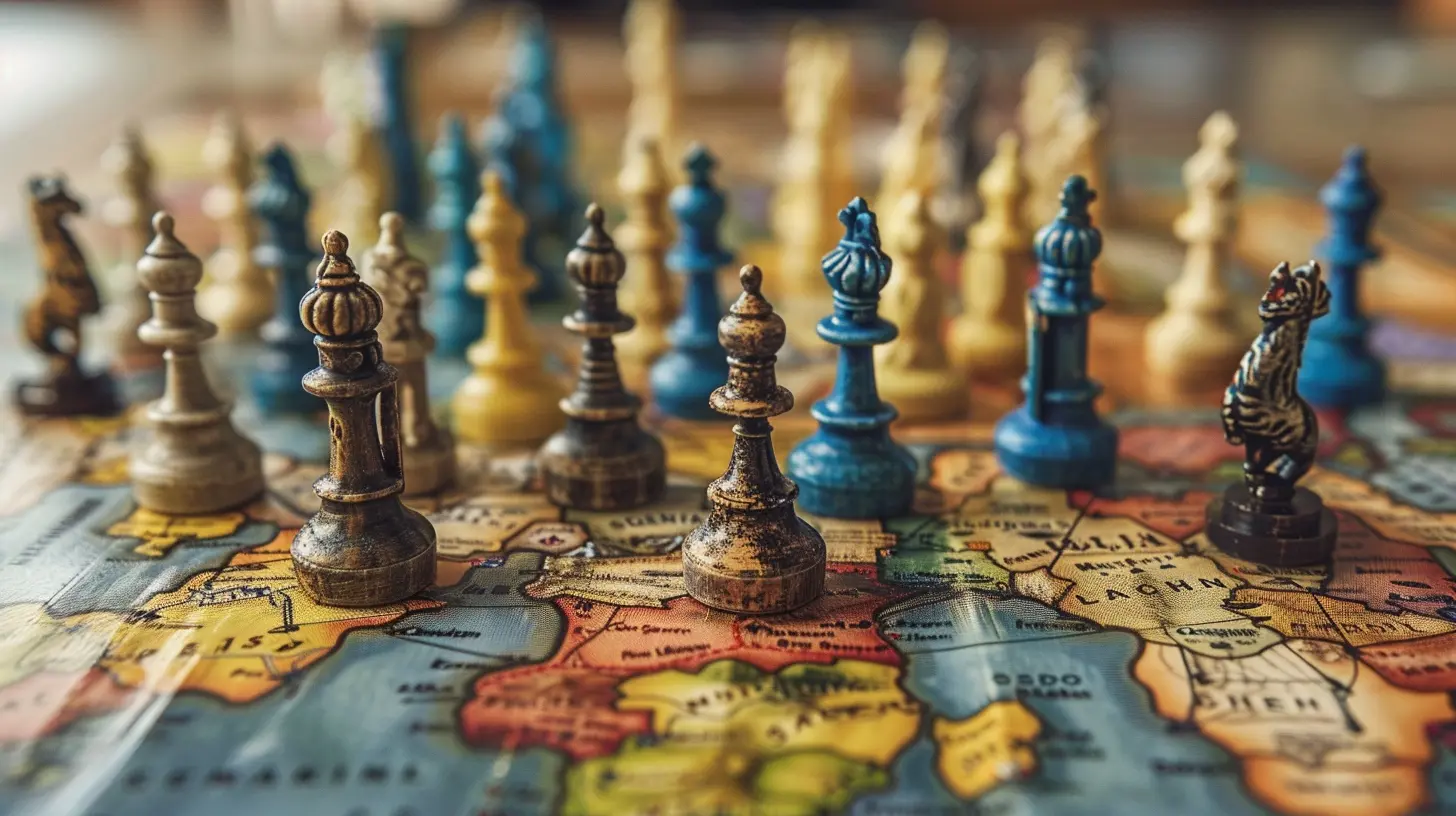
Real-Life Lessons From Gaming Diplomacy
Here’s the thing about practicing diplomacy in games—it doesn’t just make you a better player. It can actually help you in real life too. Yeah, I know, it sounds cheesy, but hear me out.1. Negotiation Skills
Convincing someone to join your alliance or spare your base in a game is essentially negotiation 101. Those same skills translate into the real world, whether you’re buying a car or convincing your boss to give you Friday off.2. Emotional Intelligence
Games like Among Us or Mafia force you to read people’s expressions, tone, and behavior. Not only are you figuring out who’s lying—you’re also learning how to hide your own emotions. Talk about next-level people skills.3. Handling Conflict
Diplomacy teaches you to defuse conflict before it explodes. In a game, that might mean convincing someone not to attack you. In real life, it might mean navigating office politics or negotiating with your sibling over who gets the last slice of pizza.When Diplomacy Goes Terribly Wrong
Of course, diplomacy isn’t foolproof, and sometimes your plans will crash and burn in spectacular fashion. Maybe your betrayal is too obvious, or perhaps you trusted the wrong person (rookie mistake). But hey, failing is half the fun, right? If every diplomatic effort worked, games would be boring, predictable, and about as exciting as watching paint dry.Don’t be afraid to fail. The best diplomats are the ones who learn from their mistakes. Plus, let’s be honest—there’s something hilariously satisfying about watching someone’s diplomatic house of cards collapse in real time.
The Final Word: Be A Maverick, But Be Smart
At the end of the day, the art of diplomacy is equal parts strategy, charm, and good old-fashioned guts. It’s about knowing when to play nice and when to stir the pot. Mastering diplomacy will not only make you a fierce competitor, but it’ll also make your gaming sessions infinitely more memorable.So, the next time you sit down to play Catan, Among Us, or even Risk, remember: alliances are fragile, everyone’s a little bit selfish, and trust is earned—not given. Oh, and always keep an eye on that one quiet player in the corner. They’re probably up to something.
all images in this post were generated using AI tools
Category:
Tabletop GamesAuthor:

Leandro Banks
Discussion
rate this article
1 comments
Heath Summers
This article adeptly highlights the nuanced role of diplomacy in competitive gaming, illustrating how strategic alliances and negotiations can shift power dynamics. It emphasizes that understanding social interactions is as crucial as gameplay mechanics, enriching the player experience and outcomes.
October 4, 2025 at 3:34 AM

Leandro Banks
Thank you for your insightful comments! I'm glad you found the exploration of diplomacy and social interactions in competitive gaming valuable.
